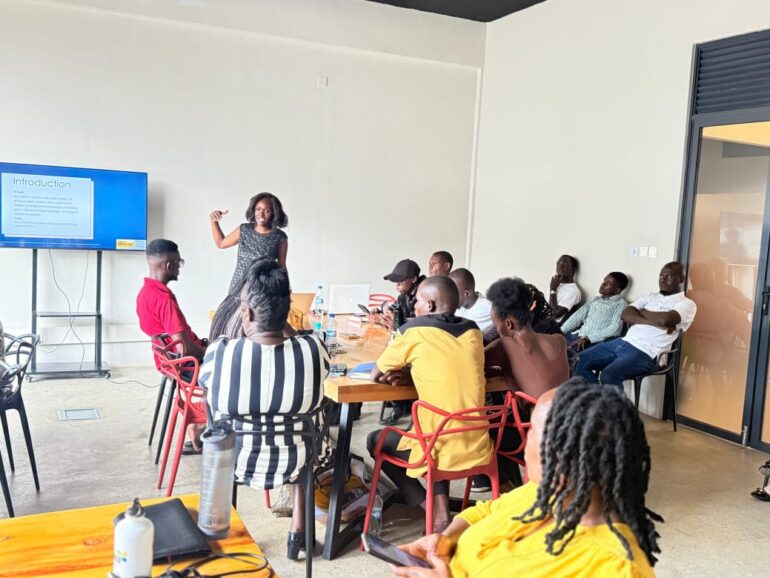The Kisumu edition of the Harmful Speech Training brought together content creators, community mobilizers, journalists, youth leaders, and digital advocates from across the region for a focused discussion on misinformation, disinformation, hate speech, and online safety. This session forms part of a broader national effort to strengthen media literacy and promote more responsible and constructive digital engagement.
The training began with an exploration of the foundational concepts of fact-checking, including the distinctions between misinformation false information shared without harmful intent and disinformation, which is created and spread deliberately to mislead. Facilitators guided participants through the societal, political, and emotional impacts of misleading narratives, particularly in highly connected online environments. This was followed by a practical, hands-on exercise where participants learned how to verify images, assess the credibility of sources, and apply structured fact-checking techniques to real-world examples. These exercises were designed to help participants reflect on their individual roles within the information ecosystem and the importance of verifying content before amplifying it.
The conversation then shifted into a discussion on hate speech and technology-facilitated gender-based violence, highlighting how harmful speech online can lead to real-world consequences, particularly for women, marginalized communities, and public-facing individuals. Participants examined Kenya’s legal frameworks, including the National Cohesion and Integration Act, alongside platform reporting tools and community guidelines intended to create safer digital environments. Through this dialogue, the training emphasized the need for empathy and responsibility in online interactions, as well as the critical role of communities in setting the tone for how people engage with one another online.
Speaking during the event, our communications Lead Vallary Lukhanyu said that, “This training is part of our commitment to strengthening digital safety and informed online engagement across Kenya. Harmful speech affects communities both online and offline, and building the capacity to recognize, counter, and prevent it starts at the grassroots level. We are implementing this program across five counties including Mombasa, Nairobi, Uasin Gishu, Kisumu and Nakuru counties. Kisumu is our fourth stop, and we will be concluding this phase in Nakuru. Our goal is to empower individuals to not only consume information critically, but to actively contribute to healthier digital spaces.”
“We chose this counties specifically because they are key communication and cultural centers. By engaging these regions, we are able to reach diverse voices and support broader, community-driven efforts to build safer and more respectful digital environments.” She added
The Kisumu training reaffirmed the growing demand for community-led digital literacy and rights education. As online platforms continue to influence public dialogue, social identity, and civic participation, equipping individuals with practical knowledge and tools remains essential. The participants’ engagement and openness throughout the session underscored a shared understanding that creating safer online spaces is a collaborative effort one that relies on awareness, accountability, and the collective will to foster respectful and inclusive digital communities.
The training is part of a sustained effort to build safer digital cultures under the Kenya Safe and Inclusive Spaces initiative run in partnership with 6 other organizations including KICTANET, Watoto Watch Network, Mzalendo Trust, Tribeless Youth and Internews, funded by the European Union.
